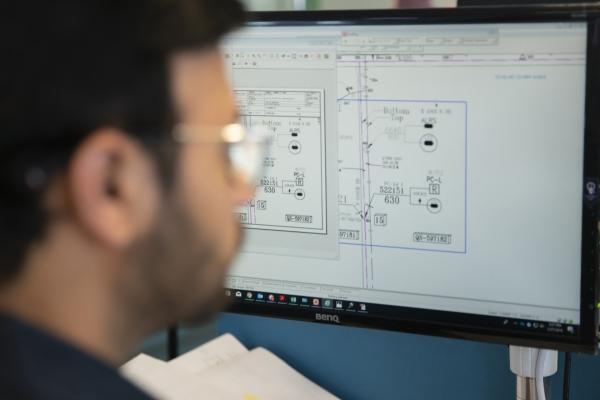So, you think you want to be an engineer – now what? Choosing the engineering field that’s right for you

Some people choose to become an engineer because they’re good at math. Others come from a family of engineers and have been around it their entire lives. And then you have those like Ying, an electrical engineer at KDM, who wanted to become a superhero of some sort, but soon realized he’d have to settle for the “cool technical partner” instead. “They help to build spaceships and other sophisticated equipment. They track down villains and even devise scientific strategies to solve problems. That’s when I first learned about engineering and decided to spend more time on math and physics,” Ying explained.
For others, it takes more than a crushed superhero dream to determine they want to be an engineer. When Shrijay, a Civil/Gas engineer at KDM, consulted his older sister on what he should do when he grows up, her response made a lot of sense considering her 17-year-old brother played a lot of video games: Be a video game designer, she suggested. But Shrijay had bigger plans. He wanted to do something to help people and benefit future generations. “When I found out that I could get a degree heavily involving mathematics, one of my favorite subjects, while working towards a respectable profession in a well-paying field, the choice was simple: I would become an engineer.” Civil Engineering was the perfect discipline to fulfill Shrijay’s desire to help people. Charged with designing infrastructure that improves people’s lives, the “possibilities for having a positive impact on the world (no matter how big or small) are endless.”
With as many as 40 different types of engineering degrees, it’s not always so easy to determine which field of engineering is right for you. Several of KDM’s female engineers have family members who are also engineers, which makes sense considering the lack of women in engineering. If these women didn’t have the opportunity to learn about engineering through their family members, the chances of them discovering the field elsewhere and considering it as a career option are very low (although we are working very hard to change that). Shalini, an electrical engineer at KDM, grew up watching her father, also an electrical engineer, take things apart and put them back together just for fun. This was fascinating to Shalini, and she was intrigued by the education that taught him how to do this. With her love of math and physics, Shalini knew she wanted to follow in her father’s footsteps.
With so many engineering choices, it is helpful to try and at least narrow it down to the ones you are most drawn to once you begin your college coursework. Determine the areas that pique your interest the most and which real-world problems you feel most compelled to help solve. For Ambika, another KDM electrical engineer, she had always gravitated toward the ‘core engineering’ disciplines of electrical, civil, and mechanical engineering because of the continuity of many of the principles and practices established hundreds of years prior. “We take the same principles from back then and apply them to new and evolving problems today. What’s not attractive about that?” Ambika marvels.
Whether you want to follow in someone’s footsteps or are just more attracted to the principles of a certain type of engineering, most of our engineers would agree that it’s important to fully commit to an engineering discipline by year two of your college career. Yes, there are always exceptions to the rule, and we know firsthand that you really can do anything with an engineering degree, however, you want to make sure you are getting the most out of your education and are able to take all of the classes you need to graduate in a timely fashion. Engineering is an incredibly satisfying field to study and there are countless possibilities for where an engineering degree can take you.